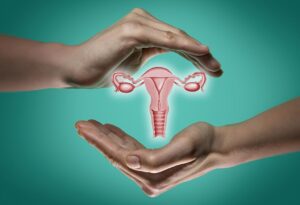

E-Brochure - Download Now!


The science of fertility is complicated and it's about time that it gets mainstream attention. At Global Fertility Solution, we're dedicating our lives to decoding this science analyzing peer reviewed studies with reproductive endocrinologists (fertility doctors), OB/GYNs, lab clinicians, and reproductive psychologists while accelerating fertility research of our own. All women deserve to know how fertility science is progressing and how to use it to take inform decisions, as well as they also deserve to understand the limitations of ovarian reserve testing. Our first step to making the right fertility information more available and personal is to make this testing more accessible for women much earlier in life.

There are simple hormone blood tests specifically AMH and FSH that can measure ovarian res erve (or, how many eggs we have left). These hormone levels can give us a better sense of our fertility timeline, egg freezing and In Vitro Fertilization (IVF) outcomes, future red flags, and menopause onset, than just age.
AMH, or Anti Mullerian Hormone, is a hormone produced by cells inside our follicles (the little sacs that hold our eggs) that serves as a proxy for the amount of eggs we have left. The level of AMH our follicles create reflects the number of eggs we have waiting in the wings. FSH or Follicle-Stimulating Hormone, supports maturation of the follicle. If the body needs high levels of FSH to kick-start this maturation, it may be a sign of low ovarian reserve.
These tests have traditionally been used by reproductive endocrinologists to understand potential outcomes for egg freezing and IVF and to determine how much the ovaries need to be stimulated to collect eggs for each procedure. When we have broader access to this testing we have more data for decision-making.

Most women need more information than just can I get pregnant right now? When tracked over time, this testing helps us understand our fertility timelines which are as unique as our metabolisms. Ovarian reserve testing is also valuable in understanding when we'll reach menopause and in assessing egg freezing and IVF outcomes. Let's break these down:
Premature Ovarian Failure (POF) , also known as Primary Ovarian Insufficiency (POI), the early loss of ovarian function, affects 1 in 100 women. POF or POI occurs when a woman's reserve of eggs are depleted at an early age (usually before 40) or when her ovaries are dysfunctional. Both these factors could lead to premature menopause and infertility. It's important to note that some women with POF (POI) may still ovulate.
FSH and increasingly AMH are used to diagnose POF. AMH is a particularly useful marker for POF because it is secreted by developing follicles, and thus levels of AMH correspond proportionally to ovarian reserve. Low AMH is a red flag for POF because it could indicate that one has fewer eggs than average. A simple AMH blood test can help identify if someone is at risk for POF earlier in life. AMH levels can also predict the chances of a live birth for women with POF.
Both POF and DOR (Diminished Ovarian Reserve) greatly impact the likelihood of a healthy pregnancy, Egg freezing and IVF outcomes, can have implications for bone, heart and sexual health throughout a woman's lifetime. Early detection is essential for proactive treatment and planning.
Ovarian Reserve Testing is a great first step, but the bottom line is: we need more research that tracks healthy women throughout their lives in order to understand every nuance of fertility. Such hormone testing procedure provides valuable data points that can help us understand how our fertility changes over time.